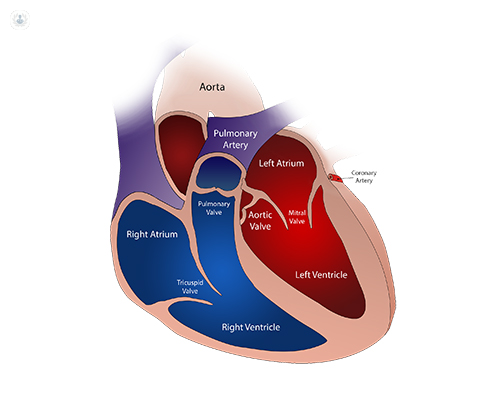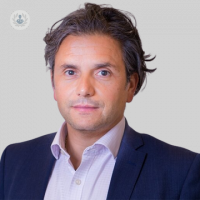An expert's guide to valvular heart disease
Escrito por:Dr Mick Ozkor is a leading London-based consultant cardiologist. In his latest article, Dr Ozkor provides expert insight into valvular heart disease, including its causes, diagnosis and how to prevent it.

What is valvular heart disease, and what are the main causes?
If we imagine the heart as a house, the valves are doorways between the rooms of the house. As we get older these valves can start to fail. They can become stiff and won’t open as easily, or floppy and won’t close properly, meaning the blood starts to flow backwards.
It is also possible to be born with valves that are more prone to problems.
Sometimes other cardiac problems can influence the valves, such as having a heart attack. The valves are an integral component of the heart that control the direction of the blood. If they aren’t functioning well, they can make the heart work less efficiently, leading to symptoms such as:
- Breathlessness
- Feeling lightheaded
- Palpitations
- A racing heart
- Chest discomfort.
How will I know if I am at risk of valvular heart disease?
The first thing a doctor will do when examining you is listen to your heart with a stethoscope. This is all that is needed to diagnose the problem in certain cases.
If you are breathless, lightheaded and getting palpitations or discomfort, we may do an ultrasound scan of the heart. This will show how the valves are working.
If you have a family history of valve problems, you may be more likely to suffer from them yourself, although this is quite rare.
More commonly, as we get older, the valves start to fail due to illness or any other type of strain that we have put on them.

How can I reduce my chances of suffering from it?
A generally healthy lifestyle can help lower the chances of suffering from valvular heart disease. I recommend avoiding the big risk factors such as smoking.
Exercise can also help. Thirty minutes of cardiovascular exercise a day has been shown to be beneficial. This has also been proven to keep your cholesterol, blood sugar and blood pressure lower.
Eating a healthy diet can also help. You should aim to eat five to seven different types of fruit or vegetables a day, and oily fish such as salmon or mackerel a couple of times a week. You should also cut back on cholesterol and salt. This can help keep the heart healthy, and hopefully, keep the valves healthy as well.
Is it life-threatening? Can it be cured?
Valvular heart disease can be life-threatening.
I usually categorise problems with the valves as mild, moderate or severe. Usually, we don’t do anything with the valves if it’s mild or moderate. If it is severe, we consider action, as it can cause problems such as heart failure.
There are lots of things we can do for the valves. Treatment usually involves changing or repairing the valve, and this can be done via open heart surgery or minimally invasive surgery. In some cases, instead of changing a valve, we can repair it.

What is the most effective treatment option for valvular heart disease?
The most effective treatment is to avoid having it in the first place.
However, if you do have it, and this may be through no fault of your own, the natural progression of the disease is to get worse.
If you have a valve that is impaired but working well, and thus not interfering with how the heart functions, then waiting longer for the sweet spot of when to intervene is best. The valves can be either replaced or repaired, and this seems to cure the problem.
Dr Mick Ozkor is a highly-experienced cardiologist, with expertise in a wide range of heart conditions and treatments. If you would like to book a consultation with Dr Ozkor, you can do so today via his Top Doctors profile.


